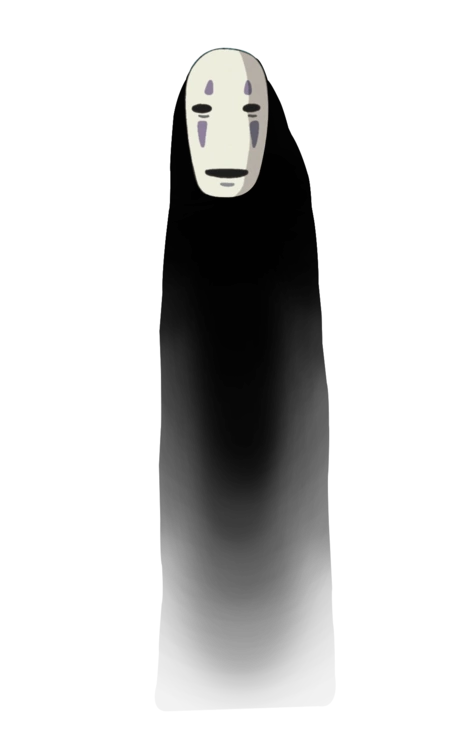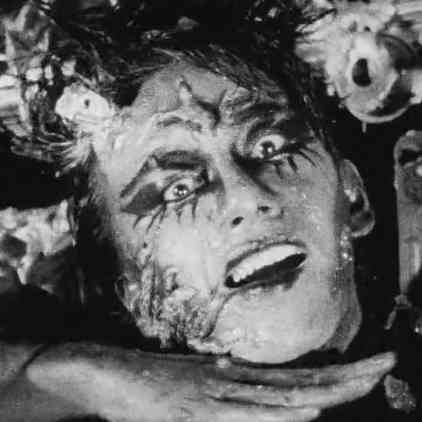 Tetsuo is the epitome of cyberpunk. The movie trilogy spans metaphors of sex, birth and death, using the melding of man with machine to represent various areas of man's psyche. My favourite of the trilogy is the original, because it's fast paced, beautifully shot and has very obvious gay symbolism that speaks to a main character who fears his own sexuality and manifests that fear into misogyny. The film has a core focus on sex and 'abnormal' desires, represented by the heterosexual (lol) Salaryman and the 'metal fetishist' Guy. To me, joining with the Guy at the end represents the Salaryman accepting his homosexuality, and finding acceptance in that - but against a world that doesn't accept him back, he has to oppose it, becoming a living weapon.
Tetsuo is the epitome of cyberpunk. The movie trilogy spans metaphors of sex, birth and death, using the melding of man with machine to represent various areas of man's psyche. My favourite of the trilogy is the original, because it's fast paced, beautifully shot and has very obvious gay symbolism that speaks to a main character who fears his own sexuality and manifests that fear into misogyny. The film has a core focus on sex and 'abnormal' desires, represented by the heterosexual (lol) Salaryman and the 'metal fetishist' Guy. To me, joining with the Guy at the end represents the Salaryman accepting his homosexuality, and finding acceptance in that - but against a world that doesn't accept him back, he has to oppose it, becoming a living weapon.
The second movie, Body Hammer, shifts the focus from sex to birth and family, reframing the main character and The Guy as brothers. It's a bleak story of intense anguish and loss, watching the main character become more and more mechanical as he is subsumed by the grief of losing his son by his own hands. The ambiguous ending suggests that the Salaryman and his wife choose to unleash their grief on the world, nurturing their own love even as they injure others.
The final movie, Bullet Man, is a bit different. It's in faltering English, which does it a bit of a disservice (it's awfully cheesy), and has a bit too much plot. As the end of the trilogy, however, I think it works perfectly. It provides a compassionate ending to the Salaryman and the Guy (the two characters that always return to their core dynamic), suggesting that we don't have to be consumed by our own emotions as represented by grotesque metal forms.
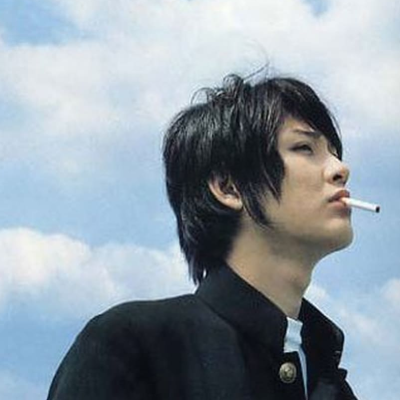 I REALLY liked this movie. It's undeniably overdramatic. The crunchy guitar music and high school stabbing incidents are a lurid, overexposed version of the agony of high school. The main character's affected aloofness is a very relatable version of how I survived high school - by shrinking into myself. The final scene is utterly harrowing, an inevitable tragedy that the whole movie has been painfully building to. It's a perfect representation of being a teenager, and I felt both an immense sympathy for the characters inside, as well as a sense of relief that I survived being a teen. It reminded me of 'all about Lily ChouChou', which is also a very good movie that I would recommend.
I REALLY liked this movie. It's undeniably overdramatic. The crunchy guitar music and high school stabbing incidents are a lurid, overexposed version of the agony of high school. The main character's affected aloofness is a very relatable version of how I survived high school - by shrinking into myself. The final scene is utterly harrowing, an inevitable tragedy that the whole movie has been painfully building to. It's a perfect representation of being a teenager, and I felt both an immense sympathy for the characters inside, as well as a sense of relief that I survived being a teen. It reminded me of 'all about Lily ChouChou', which is also a very good movie that I would recommend.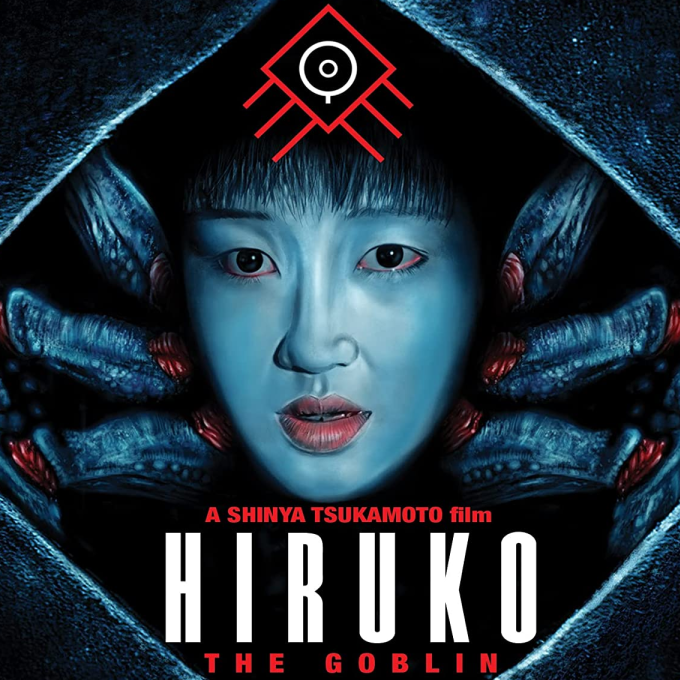 Okay, time for a review of a disappointment. I came into Hiruko with high hopes, given it's a Shinya Tsukamoto joint. Turns out this was his first foray into mainline cinema, and is totally shallow. It's just a generic horror movie with some fun special effects, but nothing super grabbing. My favourite parts of the film are when it indulges in physical effects and claymation, but the story itself is completely forgettable and just an excuse to show cool gore and action. The characters are flat and boring, and the plot itself is misogynistic with the two named women only existing to die and continue a man's personal growth. Overall, it was just a massive disappointment when I came in expecting something more akin to the tetsuo series. He's so much better than this...
Okay, time for a review of a disappointment. I came into Hiruko with high hopes, given it's a Shinya Tsukamoto joint. Turns out this was his first foray into mainline cinema, and is totally shallow. It's just a generic horror movie with some fun special effects, but nothing super grabbing. My favourite parts of the film are when it indulges in physical effects and claymation, but the story itself is completely forgettable and just an excuse to show cool gore and action. The characters are flat and boring, and the plot itself is misogynistic with the two named women only existing to die and continue a man's personal growth. Overall, it was just a massive disappointment when I came in expecting something more akin to the tetsuo series. He's so much better than this...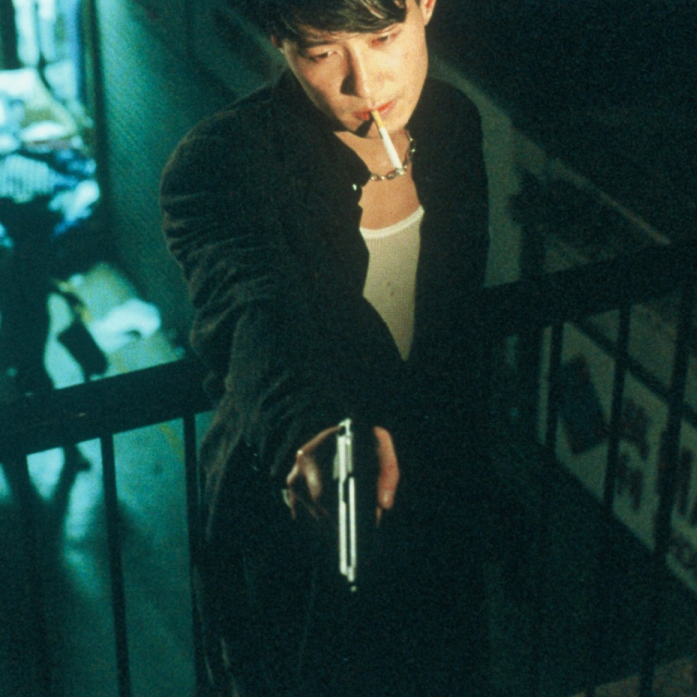 I've been binging Wong Kar-Wai recently. So far Fallen Angels is my favourite. The characters are lonely and searching for connections in a world that passively moves along with or without them. There's comedy to be found in their daily life; running into annoying acquaintances, holding a family hostage to eat ice cream together, blissfully ignoring a massacre happening all around you. But the strongest undercurrent is of sadness and desire. Desire for a partner, a shoulder to lean on, someone to talk to, to bridge the gap that cannot possibly be bridged. So you make a substitute - a girlfriend you aren't interested in, a father who isn't your own, the remnants a man leaves behind to pore over. The movie has no overarching plot, and I love it for that. It's simply human lives, aimless as they are, moving towards nothing in particular, leaving broken hearts behind them.
I've been binging Wong Kar-Wai recently. So far Fallen Angels is my favourite. The characters are lonely and searching for connections in a world that passively moves along with or without them. There's comedy to be found in their daily life; running into annoying acquaintances, holding a family hostage to eat ice cream together, blissfully ignoring a massacre happening all around you. But the strongest undercurrent is of sadness and desire. Desire for a partner, a shoulder to lean on, someone to talk to, to bridge the gap that cannot possibly be bridged. So you make a substitute - a girlfriend you aren't interested in, a father who isn't your own, the remnants a man leaves behind to pore over. The movie has no overarching plot, and I love it for that. It's simply human lives, aimless as they are, moving towards nothing in particular, leaving broken hearts behind them.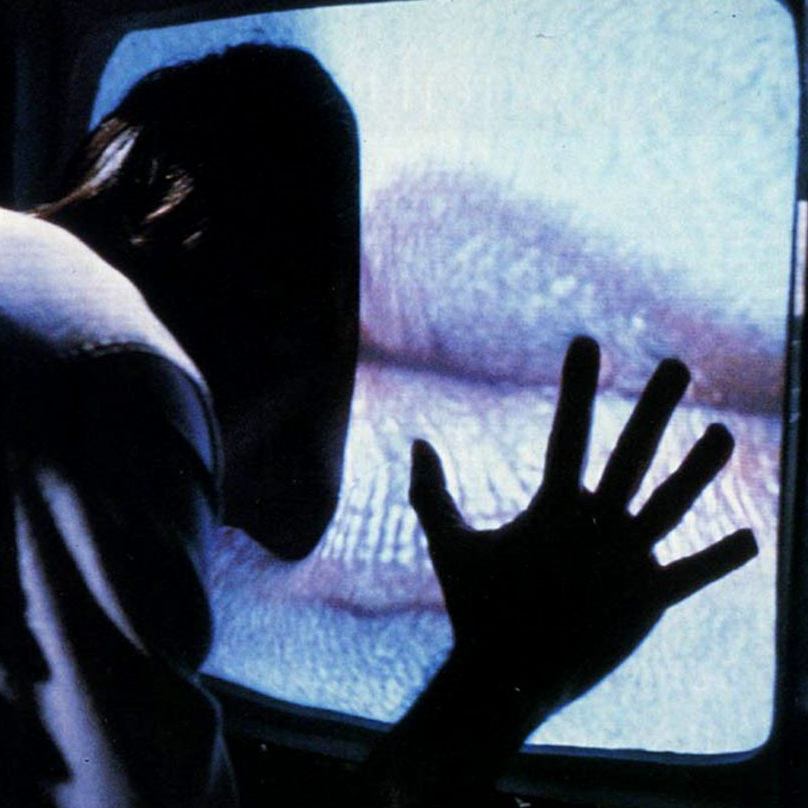 This movie has so much to say, and it accurately predicted basically everything about our current relationship with technology. The fetishism of other people made possible by othering them through a screen, the digital ghosts of the dead continuing to influence and speak to us through their virtual footprint - it's uncomfortable how much of the horror of Videodrome is now simply reality. Technological advancements have created this weird paradox where we're more and more subjected to heightened ideas of sex and violence, but at the same time they're totally devoid of passion. On some levels we're disgusted by real actual sex, yet we also seek it out and that coalesces into pastiches of sex that are all theatre and no reality. Not to mention the exacerbation of misogyny that the virtual world brings; women can be objectified by the screen, becoming vessels for lust or violence that are sublimated into publically broadcast snuff. Long live the new flesh.
This movie has so much to say, and it accurately predicted basically everything about our current relationship with technology. The fetishism of other people made possible by othering them through a screen, the digital ghosts of the dead continuing to influence and speak to us through their virtual footprint - it's uncomfortable how much of the horror of Videodrome is now simply reality. Technological advancements have created this weird paradox where we're more and more subjected to heightened ideas of sex and violence, but at the same time they're totally devoid of passion. On some levels we're disgusted by real actual sex, yet we also seek it out and that coalesces into pastiches of sex that are all theatre and no reality. Not to mention the exacerbation of misogyny that the virtual world brings; women can be objectified by the screen, becoming vessels for lust or violence that are sublimated into publically broadcast snuff. Long live the new flesh.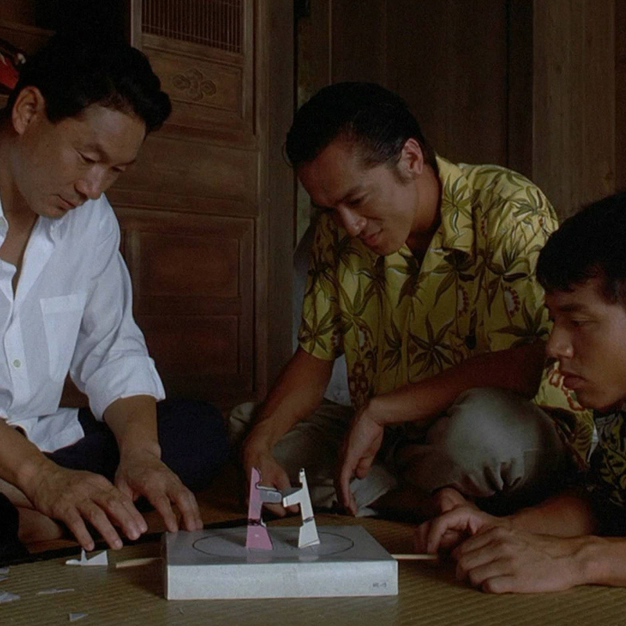 I'm a big fan of Kitano's works and Sonatine is one of my favourites. Despite seeming to be a yakuza movie, Sonatine is actually a dreamlike beach trip. The characters involved are desperate for control in their lives but have none, only existing to fulfill the orders of their higher-ups, even when they suspect foul play or know their time will soon be up. They're playing the part they think they have to - and Sonatine captures moments when the group of men try to relax and have fun all while knowing they are fundamentally trapped in a cycle of violence and death. One particularly striking motif in the movie is of paper sumo wrestlers. The characters play with them in one scene, then in a later scene re-enact the game themselves in an oneiric sequence. They are paper sumo wrestlers, being moved by forces outside of their control; their only freedom is to enjoy the stage they're on until they're knocked off.
I'm a big fan of Kitano's works and Sonatine is one of my favourites. Despite seeming to be a yakuza movie, Sonatine is actually a dreamlike beach trip. The characters involved are desperate for control in their lives but have none, only existing to fulfill the orders of their higher-ups, even when they suspect foul play or know their time will soon be up. They're playing the part they think they have to - and Sonatine captures moments when the group of men try to relax and have fun all while knowing they are fundamentally trapped in a cycle of violence and death. One particularly striking motif in the movie is of paper sumo wrestlers. The characters play with them in one scene, then in a later scene re-enact the game themselves in an oneiric sequence. They are paper sumo wrestlers, being moved by forces outside of their control; their only freedom is to enjoy the stage they're on until they're knocked off. I was amazed by how incredibly contemporary this movie felt. Despite being made in 1931, and being one of the first movies made with sound, it feels totally applicable to the modern day - and more daring than many modern films. Unfettered by a hundred years of cinematic expectations, the movie luxuriates in an excitingly ambiguous viewpoint, the camera following many people as it slowly narrows in to the three main forces of the movie - the murderer, the crooks that are inconvenienced by him, and the police who are desperately trying to catch him. The movie's refusal to answer any moral questions about the murderer adds poignancy to the final scene, so rather than feeling disappointing that we don't get a straight answer about the murderer's fate, it feels all the more realistic and thought provoking. My favourite aspect of the movie was the incredible use of shadows; reflecting the murderer feeling like he's watching himself, sharp shadows are used to incredible effect.
I was amazed by how incredibly contemporary this movie felt. Despite being made in 1931, and being one of the first movies made with sound, it feels totally applicable to the modern day - and more daring than many modern films. Unfettered by a hundred years of cinematic expectations, the movie luxuriates in an excitingly ambiguous viewpoint, the camera following many people as it slowly narrows in to the three main forces of the movie - the murderer, the crooks that are inconvenienced by him, and the police who are desperately trying to catch him. The movie's refusal to answer any moral questions about the murderer adds poignancy to the final scene, so rather than feeling disappointing that we don't get a straight answer about the murderer's fate, it feels all the more realistic and thought provoking. My favourite aspect of the movie was the incredible use of shadows; reflecting the murderer feeling like he's watching himself, sharp shadows are used to incredible effect.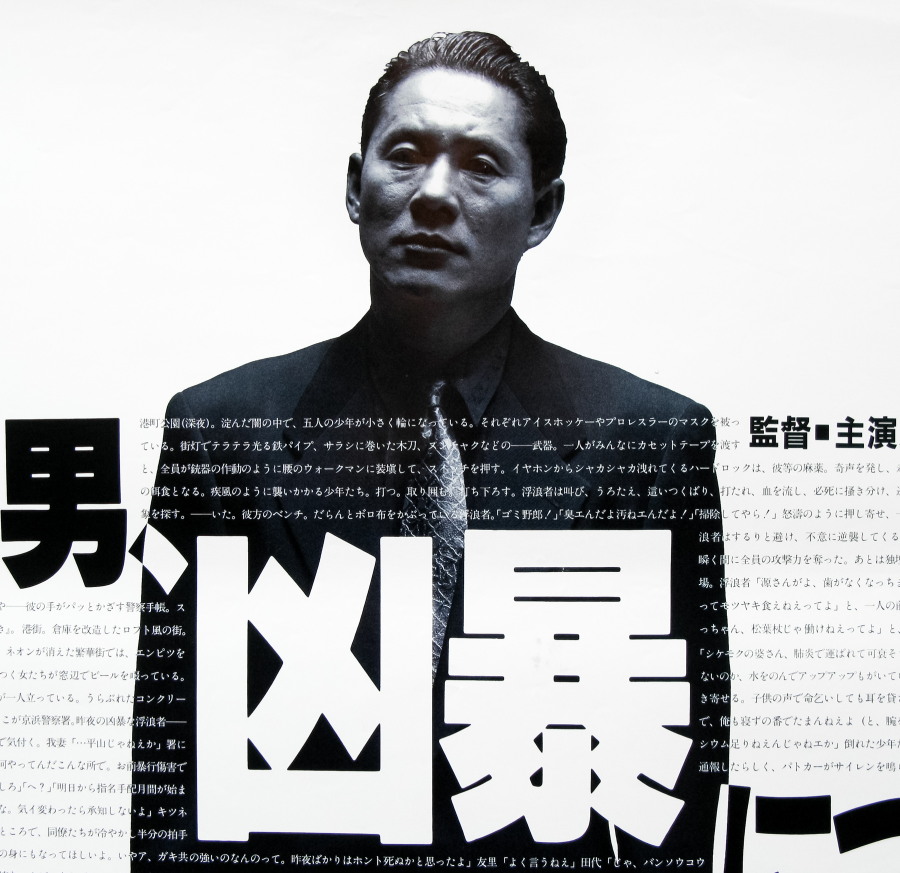 Takeshi Kitano's directorial debut, Violent Cop unflinchingly shows the violent existence of the police force. It presents us with a world where the police are both the root of the disease and the struggling palliative, where anybody with even the slightest hint of a moral compass is chewed up and spat out. Sounds sort of like real life! I liked Violent Cop all the more for its gay imagery and conflation of violence with pleasure, a concept that I enjoyed in Tetsuo: the Iron Man. It presents a world where the traditional pleasures of money, love and community are hopelessly absent, and characters instead can only grasp for meaning through their own destruction.
Takeshi Kitano's directorial debut, Violent Cop unflinchingly shows the violent existence of the police force. It presents us with a world where the police are both the root of the disease and the struggling palliative, where anybody with even the slightest hint of a moral compass is chewed up and spat out. Sounds sort of like real life! I liked Violent Cop all the more for its gay imagery and conflation of violence with pleasure, a concept that I enjoyed in Tetsuo: the Iron Man. It presents a world where the traditional pleasures of money, love and community are hopelessly absent, and characters instead can only grasp for meaning through their own destruction.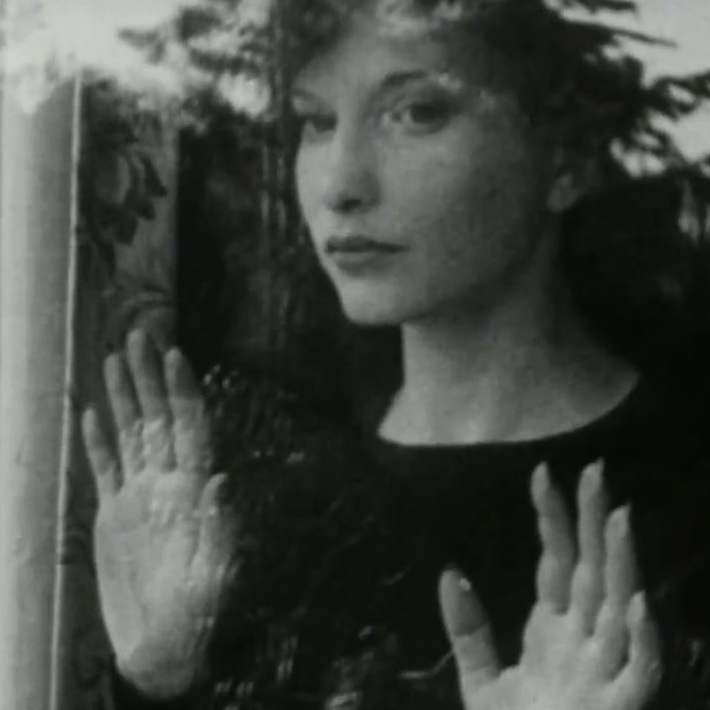 Meshes of the Afternoon is a short experimental film from 1943. It's in black and white, with no words - only an unsettling, beautiful soundtrack that undercuts the cyclic feeling of the short. A woman's uncomfortable daytime nap becomes a rhythmic repetition of dreamlike events, wrestling with her own sense of self and view of others. I really liked the character with a mirror for a face that is aptly mirrored by her husband's movements - after all, to every individual, it's impossible to see the world from any other perspective but ourselves. So our interactions with others inevitably just mirror back onto ourselves, and it's impossible to view them outside of our own subjectivity. The main character is endly chasing after that self reflection, confronting many versions of herself and eventually, perhaps, unable to bear the knowledge that you can never truly know yourself, and yet can never get away from yourself either.
Meshes of the Afternoon is a short experimental film from 1943. It's in black and white, with no words - only an unsettling, beautiful soundtrack that undercuts the cyclic feeling of the short. A woman's uncomfortable daytime nap becomes a rhythmic repetition of dreamlike events, wrestling with her own sense of self and view of others. I really liked the character with a mirror for a face that is aptly mirrored by her husband's movements - after all, to every individual, it's impossible to see the world from any other perspective but ourselves. So our interactions with others inevitably just mirror back onto ourselves, and it's impossible to view them outside of our own subjectivity. The main character is endly chasing after that self reflection, confronting many versions of herself and eventually, perhaps, unable to bear the knowledge that you can never truly know yourself, and yet can never get away from yourself either.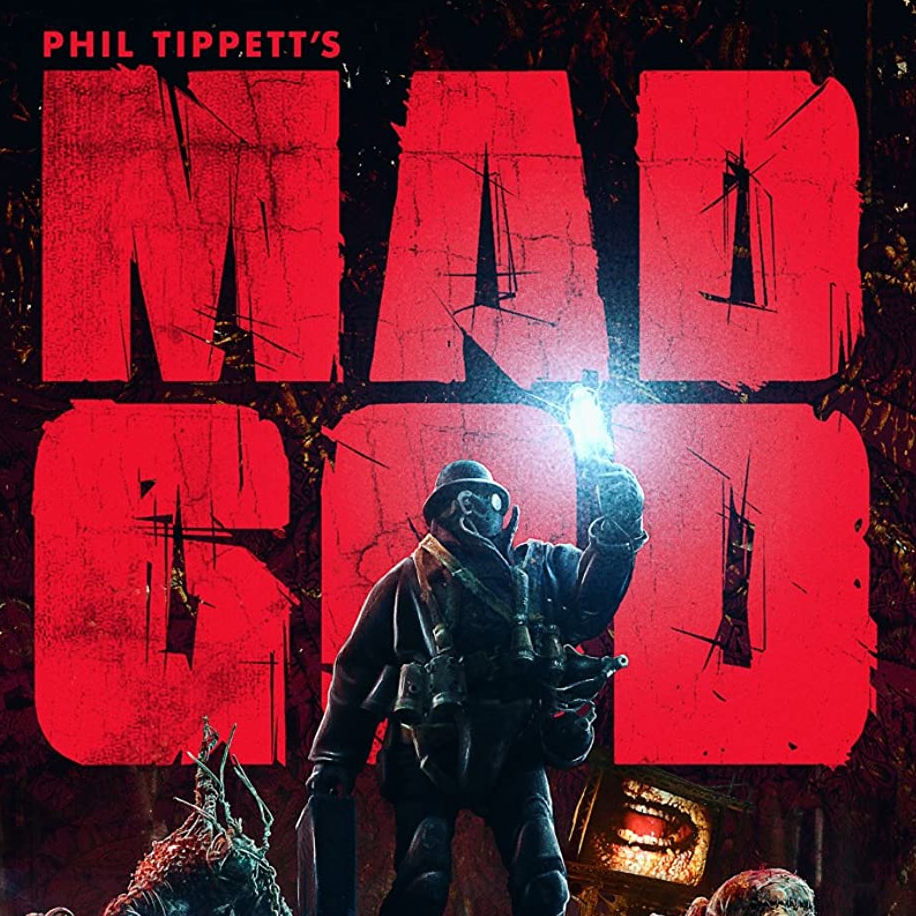 Mad God is wet and creepy (affectionate). I loooove stop motion animation and physical effects, and Mad God is very clearly a deeply passionate labour of love. The stop motion is so good that at points it really looks like real people and machinery, which is pretty mindblowing. The imagery, music and meandering 'plot' all drip with atmosphere and it's very clear that Mad God is more of a visual splendour than a coherent story. If I had to guess, I'd say it's about the pointlessness of war, specifically World War Two.
Mad God is wet and creepy (affectionate). I loooove stop motion animation and physical effects, and Mad God is very clearly a deeply passionate labour of love. The stop motion is so good that at points it really looks like real people and machinery, which is pretty mindblowing. The imagery, music and meandering 'plot' all drip with atmosphere and it's very clear that Mad God is more of a visual splendour than a coherent story. If I had to guess, I'd say it's about the pointlessness of war, specifically World War Two.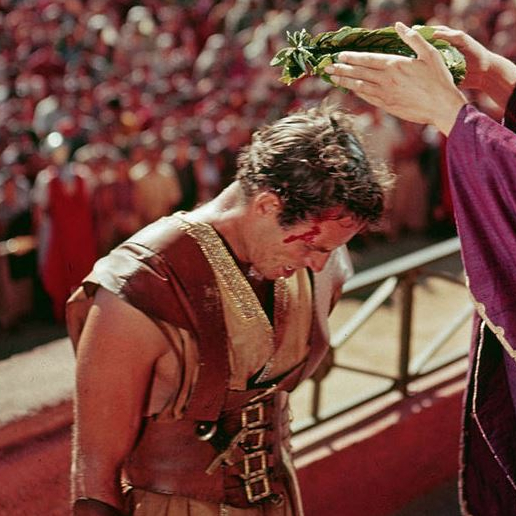 Ben-Hur was kind of hard for me to watch - it's over 3 hours long, so felt like a slog. It has an intermission and an overture, and plenty of slow ruminating in lavish scenery. I really liked it though, because it's so dedicated to those lavish scenes. It's very clear that a ton of money was dumped into this, from the beautiful architecture to the costumes. It's really cool seeing scenes with literally thousands of extras. There's a ton of violence too, espeically in the chariot scenes - Hollywood didn't fuck around. Hollywood was also super racist and sexist, so there's prominent blackface and the women are often objects to propel forward the main storyline of Judah.
Ben-Hur was kind of hard for me to watch - it's over 3 hours long, so felt like a slog. It has an intermission and an overture, and plenty of slow ruminating in lavish scenery. I really liked it though, because it's so dedicated to those lavish scenes. It's very clear that a ton of money was dumped into this, from the beautiful architecture to the costumes. It's really cool seeing scenes with literally thousands of extras. There's a ton of violence too, espeically in the chariot scenes - Hollywood didn't fuck around. Hollywood was also super racist and sexist, so there's prominent blackface and the women are often objects to propel forward the main storyline of Judah.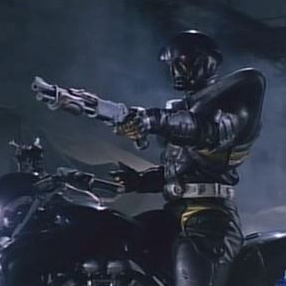 Hakaider is less a coherent story, and more visual spectacle. The simple story is merely a structure for the emotions of the main characters, primarily Hakaider. He is the embodiment of a robot created for violence, and indeed commits violence, while doing so in the name of freedom and kindness. The true antagonist, Michael, is the opposite; a robot created seemingly for peace, who uses violence to suppress and control. It's a religiously charged dichotomy, with the white Michael appearing akin to a winged angel, whereas Hakaider is the devil opposing his godlike rule.
Hakaider is less a coherent story, and more visual spectacle. The simple story is merely a structure for the emotions of the main characters, primarily Hakaider. He is the embodiment of a robot created for violence, and indeed commits violence, while doing so in the name of freedom and kindness. The true antagonist, Michael, is the opposite; a robot created seemingly for peace, who uses violence to suppress and control. It's a religiously charged dichotomy, with the white Michael appearing akin to a winged angel, whereas Hakaider is the devil opposing his godlike rule. 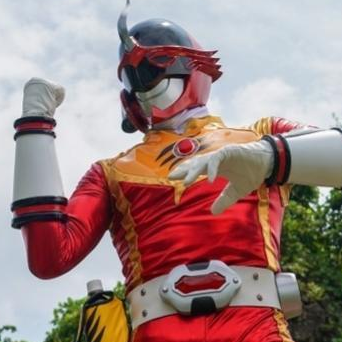 If you don't watch tokusatsu, He-Low is a cheap, incomprehensible indie movie. If you DO watch tokusatsu, He-Low is still cheap and incomprehensible, but hilarious and a fun romp with all your good toku friends! He-Low is clearly a passion project by members of Japan's tokusatsu industry, and being made on the budget of a piece of string honestly makes it more charming in my eyes. Watching actors I know be silly with each other and reference well-trodden toku tropes is immense fun, especially in a group watch. Like, come on man, Slider Kamen Dragon Knight? Ult Roman? The censored Pigmon? Delectable.
If you don't watch tokusatsu, He-Low is a cheap, incomprehensible indie movie. If you DO watch tokusatsu, He-Low is still cheap and incomprehensible, but hilarious and a fun romp with all your good toku friends! He-Low is clearly a passion project by members of Japan's tokusatsu industry, and being made on the budget of a piece of string honestly makes it more charming in my eyes. Watching actors I know be silly with each other and reference well-trodden toku tropes is immense fun, especially in a group watch. Like, come on man, Slider Kamen Dragon Knight? Ult Roman? The censored Pigmon? Delectable. Tetsuo is the epitome of cyberpunk. The movie trilogy spans metaphors of sex, birth and death, using the melding of man with machine to represent various areas of man's psyche. My favourite of the trilogy is the original, because it's fast paced, beautifully shot and has very obvious gay symbolism that speaks to a main character who fears his own sexuality and manifests that fear into misogyny. The film has a core focus on sex and 'abnormal' desires, represented by the heterosexual (lol) Salaryman and the 'metal fetishist' Guy. To me, joining with the Guy at the end represents the Salaryman accepting his homosexuality, and finding acceptance in that - but against a world that doesn't accept him back, he has to oppose it, becoming a living weapon.
Tetsuo is the epitome of cyberpunk. The movie trilogy spans metaphors of sex, birth and death, using the melding of man with machine to represent various areas of man's psyche. My favourite of the trilogy is the original, because it's fast paced, beautifully shot and has very obvious gay symbolism that speaks to a main character who fears his own sexuality and manifests that fear into misogyny. The film has a core focus on sex and 'abnormal' desires, represented by the heterosexual (lol) Salaryman and the 'metal fetishist' Guy. To me, joining with the Guy at the end represents the Salaryman accepting his homosexuality, and finding acceptance in that - but against a world that doesn't accept him back, he has to oppose it, becoming a living weapon.